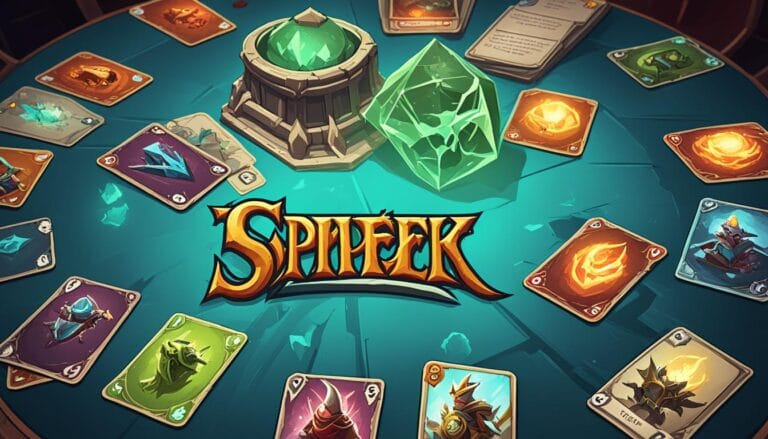Marble games are timeless, combining fun with strategy. A simple setup like a string circle and a bunch of colorful marbles is all you need. This guide brings back the joy of marbles for a new group. It includes easy steps and tips for marathon marble fun. how to play games with marbles?
Key Takeaways
- The age recommendation for playing marble games is 5 years and older.
- Safety note: Marbles should be kept out of reach of children under 3 years old due to the risk of swallowing.
- Using a shooter marble for each player and starting with a larger number of marbles can extend the game duration.
- Playing marbles help develop math skills, strategic thinking, and fine motor skills in kids.
- Players can acquire marbles knocked out of the ring from opponents by playing marbles for keeps.
Introduction to Marble Games
Marble games have been popular for a long time. They are simple but have a lot of strategy involved. The game has changed a lot, from using materials like flint and clay to the glass marbles we know today. This shows how it’s been a big part of many cultures.
Brief History of Marble Games
At first, marbles were made from different natural materials like flint and clay. Then, in 1800 China and crockery marbles appeared. Things changed a lot in 1846 when a glassblower from Germany made marble scissors. This made making glass marbles easier and started their mass production after the World War I.
Today, glass marbles are the favorite kind for playing.
Importance of Marble Games
Marbles are not just for collecting. They are at the heart of many fun games that have been played for years. These games are simple but draw you in. They teach you to think ahead and they have hidden lessons in math and physics.
Some popular marble games include ‘Conquerer,’ ‘Hundreds,’ and ‘Ring Taw’. They show the variety of ways you can enjoy marbles. This keeps the tradition alive.
Essential Equipment for Marble Games
To enjoy marble games, you need the right equipment. This is true for everyone, from new players to those who love the game. You will need good marbles, a strong shooter, and a suitable place to play. We will look at these things closely.
Types of Marbles
Marbles are a game’s core, coming in many types. Glass marbles are bright and colorful, found in Europe and America. Since the 1870s, clay marbles have been used, made in America and Europe. In WWI, the USA made more glass marbles because of less coming from Europe. Today, glass is the top choice for its looks and strength.
Marble Shooter
The marble shooter is key and has names like “taw” or “shooter.” This big marble hits the small ones. Players might use “FULKING,” a way to shoot from up high, or “KNUCKLING DOWN,” shooting low for more accuracy. Learning these moves makes your game better.
Playing Field Requirements
The game’s field can be set up in many ways, making marble games diverse. You can mark the field’s edge with string outside or with chalk on the ground. The ground must be level for fair play. Games might need special setups. For instance, the Archboard game involves aiming marbles through numbered arches. The Long Taw game needs a big, flat area for long shots.
Basic Rules and Setup of a Marble Game
Know the marble game setup to have fun. It’s easy to start and needs just a few items. The main aim is to have a special area to play in.
Setting Up the Playing Field
For the game, draw a circle on the ground. This circle should be 3 to 6 feet wide. It’s called the ring and it’s the main play area. Place the marbles at the center, also known as Mibs or Kimmies. Some games have an inner circle, which is about one foot wide.
Determining Turn Order
Deciding who goes first is key in the marble game rules. Players often use the “tolley off” method. To do this, they shoot their marble or taw towards a line drawn 10 feet away. The player whose marble is the closest goes first. This shows how important aim is and gets the game going.
There’s excitement when a player hits another’s shooter marble out of the ring. The player then takes all the marbles the other has gathered. That player is then out of the game. The game ends when there’s only one marble left in the ring. The player with the most marbles wins. This shows how important it is to be strategic and competitive in how to play games with marbles.
| Item | Description |
|---|---|
| Diameter of Playing Field | 3 to 6 feet |
| Inner Ring Diameter | 1 foot |
| Shooter Marble Size | 0.75 inches |
| Standard Marble Size | 0.5 inches |
How to Play Games with Marbles
Playing marble games is a blast and quite strategic. You just need a few marbles and a simple setup to have tons of fun. Below are instructions to help you start playing marble games.
Starting the Game
First, you’ll need at least two people to play since it’s a group or duel game. You each get a shooter marble. Use a string to draw a 6-foot circle for the play area. Put the small marbles inside the circle evenly.
Shooting Techniques
Knowing how to shoot is key in marble games. You can hold a shooter marble with your index finger or use your thumb and forefinger. Then, flick it to try and hit the other marbles out of the ring. This skill gets better with practice. It helps you hit your target and score more points.
Scoring Points
Scoring points is important when playing with marbles. You get points by shooting a marble out of the play area. The player with the most marbles by the end wins. If you keep practicing, you’ll become a better player and may win more games.
Ending the Game
The game ends when all marbles are outside the circle. Count the marbles to find out your score. The person with the highest score wins. Knowing how to end and score the game right is crucial for everyone to play fair.
| Game Element | Description |
|---|---|
| Starting the Game | Set up the playing field and scatter marbles |
| Shooting Techniques | Use proper flicking methods to hit target marbles |
| Scoring Points | Score by knocking marbles out of the ring |
| Ending the Game | Tally marbles and declare the winner based on points |
Popular Marble Game Variations
The world of marble games offers many variations, such as the classic Cherry Pit and Bull’s Eye. Each one has its own rules and challenges. This makes it fun for both those who play for fun and those who are competitive.
Classic Marble Game
The classic marble game is very old and loved by many. It’s a game where players try to hit other marbles out of a circle using their shooter marble. This game involves skill and strategy, making it fun for everyone. It’s also a great way to start learning how to play with marbles.
Cherry Pit
Cherry Pit adds a fun twist to traditional marble games. In this game, a small pit is created and players must flick their marbles into it. The aim is to get as many marbles in the pit as you can, which tests your aim and control. This makes it a good game for kids to start with, as it’s simple and visually interesting.
Bull’s Eye
Bull’s Eye is all about precision and is a competitive marble game. Players try to land their marbles in the center of a target from a distance. The closer they get to the center, the more points they earn. It boosts accuracy and is very thrilling. This game is perfect if you want to improve your shooting skills and have fun while doing so.
These marble game variations offer something for everyone. Whether you like the classic game, enjoy the challenge of Cherry Pit, or prefer the precision of Bull’s Eye, marble games are timeless and engaging.
Have fun playing!
Marble Game Strategies
Marble games mix fun with strategy. They let players use tricky moves to win. From classic to Mancala, knowing key strategies makes playtime better.
Offensive Tactics
Offense in marbles is about big moves to score. A key move is knocking out marbles with your shooter. This takes skill and spotting chances to win big in one go.
- Direct Hits: Aim for opponent’s marbles to clear the circle.
- Ricochet Shots: Bounce off the ring to hit multiple marbles.
- Chain Reactions: Knock down numerous marbles in a row for high scores.
Defensive Tactics
Defense focuses on guarding your marbles. Placing them smartly can block your opponent. This is crucial in keeping your advantage, especially in tight games.
- Positional Blocks: Form a barrier with your marbles to stop easy hits.
- Cushion Shots: Use center marbles to soften hits and keep yours in play.
- Decoy Placement: Use tricks to protect your main groups from attacks.
Marble game strategies turn simple games into smart battles. Mixing offensive and defensive moves is vital for every player. To get good, practice and know the game well. Doing so brings many wins and a love for this timeless game.
Tips for Beginners
Are you new to marbles? Know the basics well. Start with an easy game like Mancala. It’s perfect for players 5 years old and above. In Mancala, two people try to get the most marbles in their large hole. They do this before clearing out all the marbles on their side.
In Mancala, you get three marbles in each of your six holes. The game ends when someone has no marbles left on their side. The winner then takes the other person’s remaining marbles. You can learn a lot from each round by checking the marbles in every hole. This lets you see who got the most or the fewest marbles.
There are other fun marble games too. These include Marble Run, Marble Maze, and Kerplunk. They keep the fun alive while sticking to the basics of marble play.
Here’s a simple guide on how to start:
| Key Aspects | Details |
|---|---|
| Age Recommendation | 5 and up |
| Objective | Collect as many marbles as possible in the large hole before clearing all marbles on one side |
| Strategy | The more games you play, the better you understand strategic moves |
| Set-Up | Three marbles in each of the six holes per player |
| Winning Condition | First to clear all marbles from their side collects the opponent’s remaining marbles |
Improving your shooting skills in marbles needs patience and practice. A calm and steady hand helps a lot. As you play and watch more, you’ll get really good at these games. For more tips on marble games and to learn how to play with marbles, check out other guides and practice a lot.
Advanced Marble Game Techniques
Level up your marbles game with these marble game techniques. Skilled players focus on precise shots, controlling spin, and adjusting the power of their shots. These advanced marble strategies not only make the competition more exciting. They also dive into the physics of each move.
From 2 to 6 players can enjoy marbles, playing solo or in teams. Each player starts with four marbles. Rolling a 1 or 6 lets a player start moving a marble. Players can move any marble they want but can’t jump over their own. Getting a 6 means you roll again. If you roll three 6s, the last marble moved goes back to your base. To win, your dice rolls must match the number needed to move home.
When aiming to win, focus on not just hitting opponent marbles, but also keeping your marbles safe. Blocking opponents is key to defense. Advanced marble strategies also involve mastering spins and tricky angles. This adds depth to your game.
Winning at marbles also involves understanding how teams work. In team games, sit across from your partner. You can jump over your partner’s marbles, but not hit them. Making smart moves is crucial to get your team’s marbles home before your rivals do.
Using advanced tactics includes making the best of Fast Tracks and center holes. Fast Track circles can only be reached by an exact roll. After mastering this, the challenge is getting your marbles to the center hole using clever strategy.
Advanced marble strategies turn a simple game into an art of war. They make competition more intense and fun. Whether playing alone or in a team, these tactics will improve your marble game.
Here’s a table summarizing key advanced rules and actions:
| Action | Rule | Advanced Tip |
|---|---|---|
| Starting Move | Roll 1 or 6 | Focus on achieving precise rolls for strategic placement. |
| Three 6s | Last marble returns to base | Avoid consecutive high-risk shots to maintain marble position. |
| Jump Over | Can jump over partners | Utilize partners’ marbles for tactical maneuvers. |
| Fast Track Entry | Exact roll required | Plan moves ahead to land precise rolls efficiently. |
| Center Hole Exit | Roll 1 to exit | Control dice roll to strategically delay or hasten exit. |
Safety Tips for Playing with Marbles
Playing with marbles is fun, but keeping things safe is key to avoiding accidents. Make sure an adult is around to watch, especially if little ones are playing. This helps make sure they play safely and follow the rules.
Kids under three shouldn’t play with marbles; they’re a choking hazard. It’s crucial to teach young ones not to put marbles in their mouths. The recommended start age for playing with marbles is five. Always use safe practices.
Set up a safe area for playing, with no obstacles. A play area with a six-foot ring will do. If it’s a serious game, use a stone slab as the ring. This keeps marbles from rolling away too easily.
| Recommended Age | Minimum Players | String Length | Ratio of Large Marbles | Start with Marbles |
|---|---|---|---|---|
| 5 years old | At least 2 people | At least 6 feet | One large marble for each player | The more marbles, the longer the game |
Play playing with marbles using only one big marble per player. This is called a “tolley.” It’s best not to play for keeps. It avoids upset and fights among the kids.
It’s good to understand what games are right for different ages. Basic games are fine for those over five. But eight-year-olds and up might enjoy more challenging games. Six is the ideal number in team games, where the goal is to hit out the most marbles safely.
Benefits of Playing Marble Games
Marble games have fascinated people for ages, crossing time and cultural borders. Their main draw is their ability to improve strategic thinking and hand skills. Glass marbles became popular in the early 1900s. They’re still loved today, especially for their bright colors and cool designs.
Playing games with marbles helps kids develop essential skills. These include better hand-eye coordination, motor skills, and the ability to focus. Marbles also bring friends together, creating fun and helpful social experiences. Plus, winning or losing teaches important life lessons like fair play and reaching for goals.
Marble games are more than fun; they also boost thinking skills and focus. The fact that marbles have been found in Egyptian tombs shows they’ve been educational for a long time. They help with thinking skills and getting along with others. Traditional marble games are a fantastic and endless way to learn and mature.
Here’s a quick look at the key benefits of marble games in a table:
| Benefits | Description |
|---|---|
| Motor Skills Development | Enhances hand-eye coordination and fine motor skills |
| Social Benefits | Builds friendships and social skills |
| Cognitive Enhancement | Improves thinking, memory, and problem-solving |
| Competitive Spirit | Teaches the importance of fairness and reaching goals |
| Educational Value | Helps in learning about shapes and tactics |
In short, the benefits of marble games go way beyond just fun. Teaching and playing marble games helps people grow a range of skills and values. This makes marble games a valuable and timeless pastime.
Conclusion
Marble games have been loved for many years. They are both fun to play and great entertainment. These games teach us the first rule of having fun – know the game’s rules. There are easy games like Bullseye and more complex ones like Fox and Geese. Marble games are for everyone.
Marble games are becoming popular again. This shows they are still loved and can be fun for anyone. You can play relaxing games such as Marble Putt-Putt. Or, try more competitive games like Double Ringer. There are so many types, everyone can find something they like.
Learning different ways to play with marbles is exciting. It increases our skills and thinking. This guide helps you learn all about marble games. It shares why these games are timeless and loved by many. Enjoy the fun and challenge of marble games. They offer endless hours of fun and thinking.






















